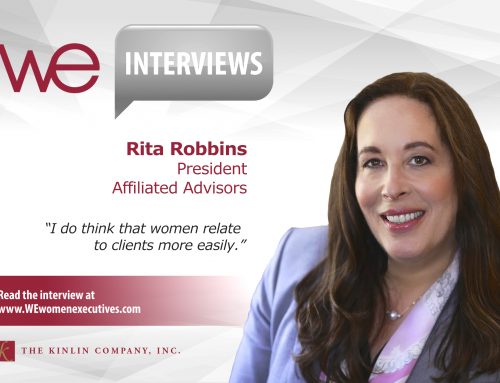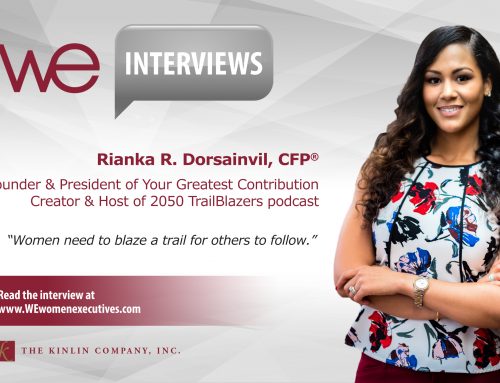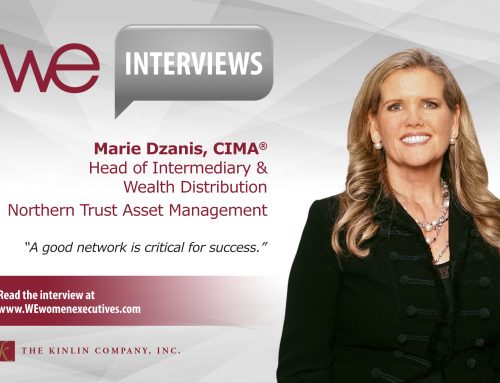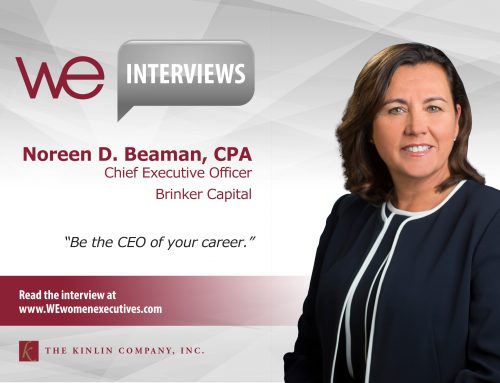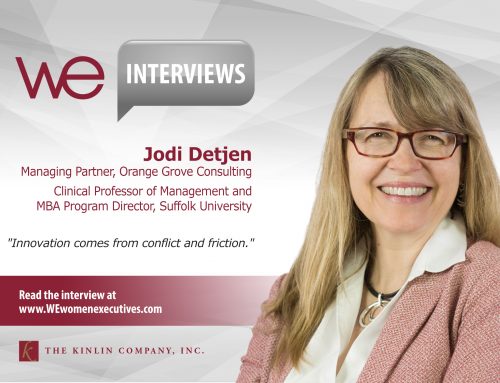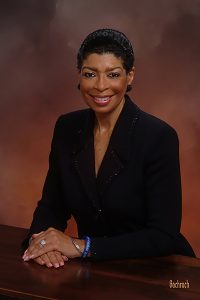 Carol Fulp
Carol Fulp
President & CEO
The Partnership, Inc.
Carol Fulp is President and CEO of The Partnership, Inc., a Boston-based organization with more than three decades of history behind it. The firm’s mission: to help ensure the economic competitiveness of the region by attracting, developing, and convening professionals of color and helping to ensure they reach their highest potential. The Partnership also works simultaneously with organizations to help them create climates where diverse professionals can thrive.
The Partnership offers programming for early-stage professionals of color, mid-career professionals, next-generation executives, and C-suite executives of color in the Commonwealth.
“Our core business is providing leadership development training for professionals of color,” says Carol. I recently had the opportunity to sit down and speak with her about these exciting initiatives.
Encouraging new perspectives
I began the conversation by clarifying The Partnership’s audience. How are you marketing…to corporations, individuals, or both, I asked.
“We market similarly to other leadership development programs. Just as corporations might send individuals to Harvard Business School or women to a women’s leadership program, a corporation would send an individual of color to The Partnership, as we focus on multi-culturals navigating corporations. Corporations send their high potential leaders of color to The Partnership to help advance their careers. During the years, we’ve had about 300 corporate clients refer individuals to us and we’ve amassed an alumni group of over 4,000 participants.”
Are the programs varied in terms of time frame?
“Yes. Our early-stage and mid-career professional programs are year-long offerings that bring participants together monthly. We bring faculty from across the country to lead various sessions hosted at different companies in Greater Boston. For instance, we will have a session on emotional intelligence and another on navigating organizations. All the participants are professionals of color. As such, the conversation they have might be very different than the conversation that takes place in a mixed setting. In this environment, participants can really ask for what they need and can discuss how race impacts them at work.
“It’s a complex situation. They want to be able to bring their best self to work – they don’t want to hide, and they don’t want to be a cookie cutter employee. They want to be able to have these conversations. It is similar if you are a woman – you want to be able to have the conversations. Our participants want coworkers to understand them better so that they can have better work relationships, build more trust, and foster more innovation by feeding off one other.
“Each person brings a different perspective, and it’s important to be able to say, ‘Let me hear from you. Your experience is different; I’m not saying my experience is better than yours, but I know you have a different way of looking at things, and that’s important, because the marketplace is different, it’s global. The marketplace is becoming more and more diverse, and I could benefit from hearing your perspective.’
“Another important program is the one we conduct for next-generation executives. We’ve found that mid-career individuals who are moving into the executive suite benefit from intensive development experiences. As such, we created the Next Generation Executive (NGE) Program. This is a seven-month program. It involves 50 participants and faculty from around the country. The program starts with a four-day intensive program at MIT, and then we enter the incubator stage of the program. Each participant has an executive coach, which is critical at that stage of development. The program will conclude with a three-day resiliency session at Morehouse College, where one of our former board chairs, Dr. David Thomas, recently assumed the role of president of the college. Morehouse, one of the most renowned historically black colleges, is the alma mater of Dr. Martin Luther King, Jr. Having our program convene at MIT and Morehouse certainly creates unique experiences. The NGE Program bridges these two worlds that are both critically important to executives of color.
“Our highest-level program is the C-Suite Program. This program brings together CEOs, CMOs, and CFOs, etc. for a networking experience with high-level executives. Recently, we created a C-Suite reception with Congressman Joe Kennedy. We also hosted a dinner with Senator Ed Markey. We held a C-Suite reception at the Boston Globe as well – one of our C-Suite participants, Vinay Mehra, is the president of The Boston Globe and the treasurer of our board. When David Thomas was named president of Morehouse, Vinay chose to host a C-Suite reception for him and other CEOs across the city. Think about it…you have a person of color who is the president of the Globe and a member of our C-Suite Program. He brings nearly 100 high-level individuals of color together – exceptional individuals who are really making this city work. From my perspective, that goes a long way toward reinforcing the idea that Boston is a majority-minority city. It reinforces the fact that the U.S. Census Bureau indicates that, by the year 2042, there will be more people of color in this country than Caucasians. It also enables us to ask our clients, ‘Are you ready, as clients, to hire individuals in your company who may not look like you or think like you, but who are incredibly bright, innovative, and can help your company succeed?’” And if you are an individual of color, we ask, ‘Are you participating in The Partnership’s leadership development programs that will help you reach your full potential and prepare you for the new opportunities ahead?’”
Embracing a new normal
Having gained a sense of The Partnership’s goals and offerings, I was eager to focus on Carol. Looking down the road, are there new trends or opportunities that you expect to be addressing, I asked. And how do Millennials factor into the equation – are they changing the way you do business?
“Millennials are changing the way everyone does business. From our perspective, it’s important to note that there are more Millennials of color in this generation than in any other generation. In fact, 44 percent of Millennials are of color versus 28 percent of Baby Boomers. These differences are due to the demographic shift. Today, more babies of color are born in this country than Caucasians, and you see the changes in the schools. In schools across the country, there are more students of color than Caucasians. There are also more Millennials than Baby Boomers, and their thinking is very different – it’s diverse, it’s innovative, it’s inclusive of everything and everybody, and it’s really energizing. I really value their interests and their life of equality without even thinking of it.
“Equality is just a norm to them, and equality means, ‘Yes, Johnnie is gay – what’s the big deal?’ Such thinking is a norm for them, whereas we had to have movements to make that acceptable. Their attitudes are the result of all our movements. Difference is very much a part of their everyday world. As such, we are going to see a very different corporate life as these young people rise and take on executive positions.
“As The Partnership continues to grow and expand, we want to make sure that we engage our 4,000 alumni. The sheer number of alumni is power. And corporations felt strongly enough to pay for these individuals to attend our programs. For example, you might do our program for a year, and we feel that once you do the program, we need to make sure we stay connected with you. That means we continue to provide leadership development programming, we get you engaged in our BoardLink Program, etc.
“It’s also critically important that we be a part of the national and local dialogue on race. We’ve been talking a lot about the Boston Globe seven-part series on race, and we’re working with the media company because they have received such interest in this series. Whether you agree with it or not, it has caused incredible dialogue in the city on race, and the Globe will be now serving as a convener, hosting sessions at the JFK Library where they will invite experts – Globe Spotlight reporters, CEOs, civic leaders – to discuss each of the article topics. To affect change, you must have the business community present — it’s important that our business leaders are a part of the discussion as well as part of the solution. For us, further engagement in race relations is critical given the national dialogue and given what is happening here in Boston. Boston is now a majority-minority city, but as the Globe Spotlight series pointed out, the number of individuals in corporate is the same as it was 20 years ago. The percentage is the same, so we haven’t made progress. Yet our population is growing, so there is a real opportunity to affect change.”
Empowering the next generation
You’re obviously a busy woman, yet also someone who’s very committed to giving back. You serve on the boards of Eastern Bank, American Student Assistance Corporation, the Harvard Kennedy School Women’s Leadership Board, the John F. Kennedy Presidential Library Foundation, Beth Israel Deaconess Medical Center and Boston University. What is the driving force behind this work?
“I’m a child of the Civil Rights Movement. I marched on Washington in 1963 with my parents and I was there when Martin Luther King said, ‘I have a dream.’ I’m fortunate to be a Baby Boomer, because I grew up in an era when the doors began to open. I’m a true believer in the saying that “Rosa sat so that Martin could march, and Martin marched so that Barack could run, and Barack ran so that all, all our children could fly.”
“I’m so fortunate to have lived in this era, and I am cognizant of the fact that many people fought and died so that I could be working and sitting in this seat today. So many people sacrificed, and my responsibility is so small compared to what they did for me. My work is to empower the next generation so that they can advance. My job is to help open doors even further, so that those left out of the mainstream can enter.
“I didn’t get in by myself. I went to a black elementary school because I couldn’t go to any other school, and as it began to change, I went to a mixed race junior high school and a mixed race high school. I was there for the change. I wanted to go to Spellman, an African American college, but my mother said, ‘For the first time, you can go to a white college, and we could never have that before. So, you are going to take this opportunity.’
“That shift occurred because of the Civil Rights Movement, and I was there for the shift. We were cognizant of the lives that were lost for our civil rights. We were there when the bomb hit the Birmingham church and the four little girls were killed. The life we have today is because of those sacrifices, and of course we were there for Martin’s death – as we commemorate the 50th anniversary of his assassination this year.”
Recognizing the power of diversity
It sounds like your parents were a huge influence on you, but what about mentoring and sponsoring? Did you have anyone that mentored or sponsored you? And are you now acting as a mentor or sponsor for anyone?
“As a child, I had my Aunt Gertrude, who was literally larger than life. She was a businesswoman and community leader in the Virgin Islands and my mentor. She always said, ‘When it’s time to be the hammer, strike, and when it’s time to be the anvil, bear it.’ She taught me to step out and punch above my weight, and she also taught me that when you make a mistake, you must take responsibility for it. She was my first role model; I get my spirit from her, as well as my sense of community and my commitment to giving back.
“In terms of corporate experiences, I learned many lessons along the way, and many people helped me. I also learned by watching people, which I love, because today I’m really a composite of the many people I’ve met along the way. One of my mentors is Wayne Budd, who I so value. Wayne was the senior executive vice president and general counsel for John Hancock. I worked for him for four years, but I knew him as a community leader before that. Working with him, I saw how he treated other people – he knew the name of every security guard at John Hancock. He’d walk through the building, saying ‘Good morning, John. Hello, Mack. How are you doing?’ And when we were in a company car, he would say, ‘Carol, you can ride in the back,’ and he would ride up front with the driver, because he was on par with them.
“It’s because he is a person of difference that he has more sensitivity to others – you’re not invisible to him. Everyone has value to him. When you’re a person of difference, you can be invisible. When you’re a woman, you’re frequently invisible to others. When you’re a person of color, you’re frequently invisible to others. So, when you have the chance to be in any position of power and influence, you remain mindful of those times when people have made you feel invisible and you make sure you don’t make anyone feel that way.
“That’s leadership. When you have influence, it is important to use this position to motivate others. After I moved from the corporate world – where I had a position of influence – to a nonprofit, I had relied on inspiration to motivate others.
“I was very fortunate to have the CEO of John Hancock, John DesPrez, and the CEO of Manulife, Donald Guloien, as mentors. They believed in me because I was different, and my difference added value. My difference provided a fresh perspective, which was of value. Because of my many years of community engagement, I understood the city, which was helpful to my company. They knew that my lens was different and that I could provide diversity of thought. I felt my opinions were valued, and when you feel valued in an organization, you bring your best self to work.”
Thinking outside the box
A few months ago, I was interviewed by a Wall Street Journal reporter who was interested in firms that are truly doing something unique to help middle management female managers get ahead. Are you aware of any organizations that are doing something unique?
“I have to applaud the Women’s Leadership Board at the Harvard Kennedy School, an amazing organization that brings together women from across the globe. You encounter women leaders across industries not only in your country, but also in countries around the globe: England, Ireland, South Africa, Australia, etc. You get to see women power across the globe, and the amazing speakers from the Kennedy School give you insights into the world that not everyone has. Being in a room with incredible women from corporations to NGOs and beyond, who are self-made, allows you to think about things that you might be able to do to make a difference. I’ll give you an example.
“One year, Paul Farmer, a physician who does work in a clinic in Rwanda and a Co-Founder of Partners In Health, was a speaker. He’s incredibly inspiring. When I came back, I said, ‘You know what, Hurricane Katrina just happened. If Paul Farmer, a doctor at Brigham and Women’s, can go across the world to Rwanda and help young kids with AIDS, then I can certainly do something for the people hurt by Katrina. I was inspired by him and what he did.
“In response, I decided to create Boston Women Build in the Bayou. I got together 35 executive women – including Boston’s First Lady, Angela Menino, and Diane Patrick, then first lady of the commonwealth – and we went to New Orleans and built Boston House, a Habitat for Humanity project. To promote our efforts, we had our ABC affiliate Channel 5, which has a sister station in New Orleans, broadcasting live every day we were there. We also had the president of WGBH, Boston’s NPR station, and his wife go on the trip and broadcast as well.
“This was a passion project for me, inspired by the Women’s Leadership Board, but I was working for John Hancock and my company still needed to benefit. So, I had the sales executives of John Hancock New Orleans be the spokespeople for the project. They would be on air and say, ‘Our corporate headquarters is in Boston, and they’ve come down here and brought all these women to help rebuild our community.’ That’s the kind of company John Hancock is, and we were able to make a difference and at the same time ensure that the company received recognition for their distinct value of community.”
Maintaining your perspective
As our conversation came to an end, I posed my favorite question. What tips would you give women at any point in their career, mid-level to senior level, who are trying to navigate through their career?
- Don’t worry so much. I think about all the time I have spent worrying. Women are always worrying, ‘Did I do this right? What do they think?’ Now I sit back and wonder, if I didn’t spend all that time worrying, how much further along would I have been?
- If you make a mistake, it’s just a mistake. It doesn’t define you. When you make a mistake, the most important think is to acknowledge it, study it, figure out how to I ensure that it doesn’t happen again, and move on.
- Don’t always try to make people happy. Somewhere, somehow, there is somebody talking badly about you, and you can’t change that, but you can change how you operate. There’s a saying that helps me, which is, ‘If you can’t do the right thing for the right reason, do the right thing for the wrong reason, but do the right thing.’

